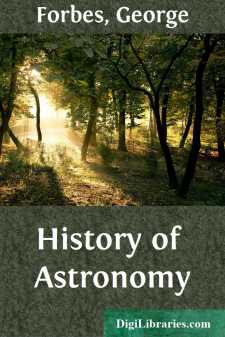Categories
- Antiques & Collectibles 13
- Architecture 36
- Art 48
- Bibles 22
- Biography & Autobiography 813
- Body, Mind & Spirit 142
- Business & Economics 28
- Children's Books 16
- Children's Fiction 13
- Computers 4
- Cooking 94
- Crafts & Hobbies 4
- Drama 346
- Education 46
- Family & Relationships 57
- Fiction 11829
- Games 19
- Gardening 17
- Health & Fitness 34
- History 1377
- House & Home 1
- Humor 147
- Juvenile Fiction 1873
- Juvenile Nonfiction 202
- Language Arts & Disciplines 88
- Law 16
- Literary Collections 686
- Literary Criticism 179
- Mathematics 13
- Medical 41
- Music 40
- Nature 179
- Non-Classifiable 1768
- Performing Arts 7
- Periodicals 1453
- Philosophy 64
- Photography 2
- Poetry 896
- Political Science 203
- Psychology 42
- Reference 154
- Religion 513
- Science 126
- Self-Help 84
- Social Science 81
- Sports & Recreation 34
- Study Aids 3
- Technology & Engineering 59
- Transportation 23
- Travel 463
- True Crime 29
George Forbes
George Forbes (1849–1936) was a Scottish physicist, astronomer, and inventor, renowned for his contributions to electrical engineering and for advancing scientific knowledge. He wrote several important works, including "The Transit of Venus" and "History of Astronomy." Forbes also played a role in designing early submarine cables and contributed to the understanding of the Earth's magnetic field. His work in electrical engineering helped pioneer the development of electric power transmission systems.
Author's Books:
Sort by:
by:
George Forbes
CHAPTER I I FALL INTO CAPTIVITY Let those who read this narrative doubt not its veracity. There be much in Nature that we wot not of, and many strange countries to explore. The monsters who roamed the earth in ancient times, as their fossil bones attest, are still to be seen in those regions hitherto unvisited by white men, and in the fathomless depths of uncharted seas leviathans find a home. Peter...
more...
by:
George Forbes
1. PRIMITIVE ASTRONOMY AND ASTROLOGY. The growth of intelligence in the human race has its counterpart in that of the individual, especially in the earliest stages. Intellectual activity and the development of reasoning powers are in both cases based upon the accumulation of experiences, and on the comparison, classification, arrangement, and nomenclature of these experiences. During the infancy of...
more...



